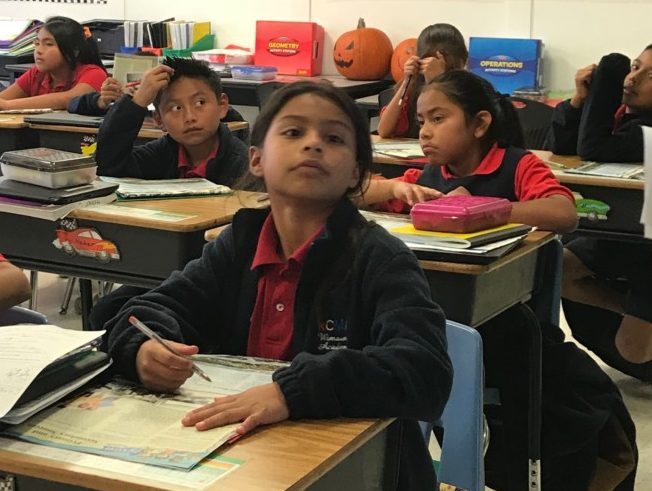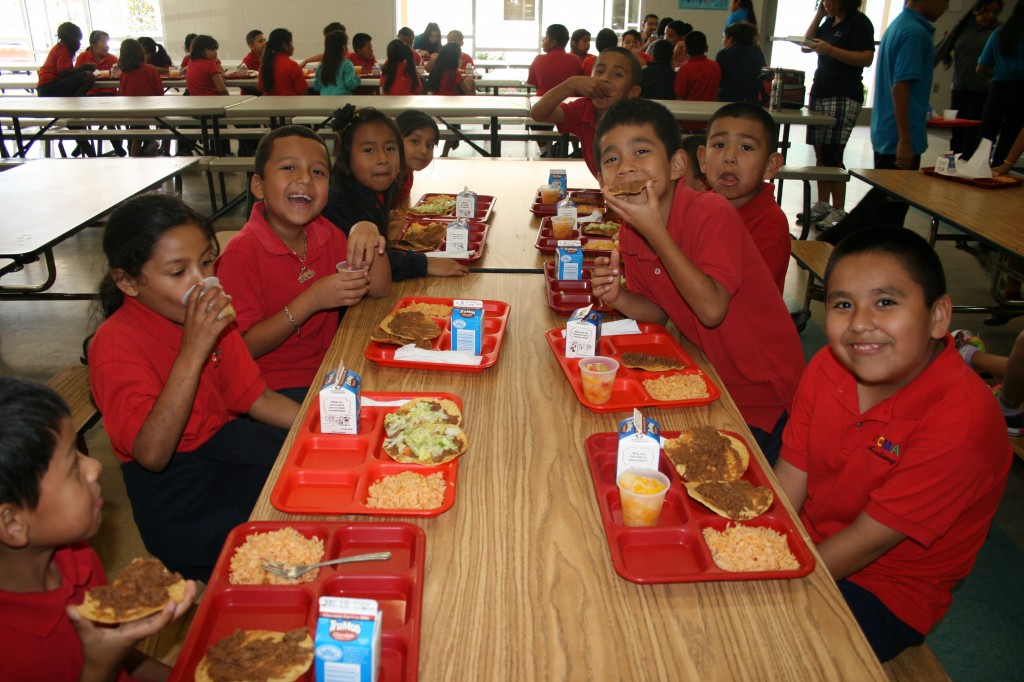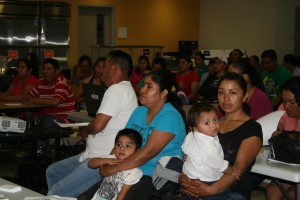Many students at RCMA Wimauma Academy struggle through the school day in fear.
Will their parents be home when they get there? Or will they immigration authorities round them up for deportation?
This is the reality many students face at a school dedicated to serving children of migrant farmworkers. Roughly 65 half percent of Wimauma residents are migrants. Many are undocumented. Life is already uncertain for their parents, who work long hours in the fields at unstable jobs with uncertain pay.
The Trump Administration's decision to phase out the Deferred Action for Childhood Arrivals program over six months created new uncertainty among immigrants around the country. The program helps provide a two-year work permit and temporary protection from deportation to young adults who arrived in the U.S. illegally as children. It helps them get jobs, pursue higher education and live without fear of deportation.
Education groups across the political spectrum — including some leading figures in the charter school movement — have spoken about the need to protect DACA students. Some have criticized the president. Others have taken a more measured approach, focusing on the need for legislative action. While the president called on Congress to replace the program before it phases out, federal lawmakers have yet to act. (more…)

Students in Mandy Johnson's third-grade class scored the second highest in the county in FCAT Mathematics in 2016..
It all begins with a song Mandy Johnson sings to her third-grade students to help them remember key math concepts.
“Area is two squares inside,” she sings. “What is the perimeter?”
She reinforces the repetition of the songs with worksheets students must complete every morning on key concepts. Johnson said this has helped students better retain the information.
Johnson said she has access to different math programs, which are not available in other public schools.
Indeed, the third-grade class at this low-income migrant school in Hillsborough County outscored every other third-grade class in the district on last year's state math assessments. Ninety-eight percent of Wimauma students are Hispanic. Nearly all are considered economically disadvantaged. More than four-fifths are classified as English language learners.
The third-grade class at this Hillsborough charter school, founded to serve the children of migrant farmworkers, was one of only 12 groups of third-graders in the state that demonstrated 100 percent proficiency on the FSA math test. Overall, scores at the school also tend to be higher than average.
Johnson said her students have a real hunger for learning. (more…)

Second-graders at the Academies of RCMA in Wimauma, Fla., enjoy a favorite for lunch: tostadas. It's the little things that help school leaders forge bonds with the children and their parents.
As dusk settled on the Academies of RCMA, students sat in classrooms while more than 150 moms and dads filled long tables inside the cafeteria.
It was Parents Night at the Wimauma charter school and even though many worked all day picking crops in nearby fields, they stayed for the whole hour.
Teachers and administrators at the coveted school say they have more freedom than most traditional public schools to develop programs that address the needs of their mostly Hispanic population.

More than 150 moms and dads come to Parents Night, where they learn how to help their children - and themselves.
But the school doesn’t limit its help to students. Founded by the Redlands Christian Migrant Association, it’s committed to reaching out to parents, as well.
“They know they struggle,’’ said Marcela Estevez, the academies’ parent liaison and director of student affairs. “They work hard. But they know the school. They rely on the school.’’
More than 80 percent of RCMA’s 258 middle and elementary students live in households headed by single moms, and 35 percent to 40 percent are from migrant farmworker families, Estevez said. Practically every child qualifies for free breakfast and lunch.
RCMA, which is located behind the Beth-El Farmworker Ministry, focuses on students’ basic needs first, such as food and clothing. Then the goal is on acclimating them to English while still celebrating their culture, said Mark Haggett, director of the academies.
It takes creativity and ingenuity, Haggett said. RCMA receives about $5,300 in state funding for each student – a few thousand less than district schools get once construction costs are considered. To make up for it, the school actively seeks donations. (more…)